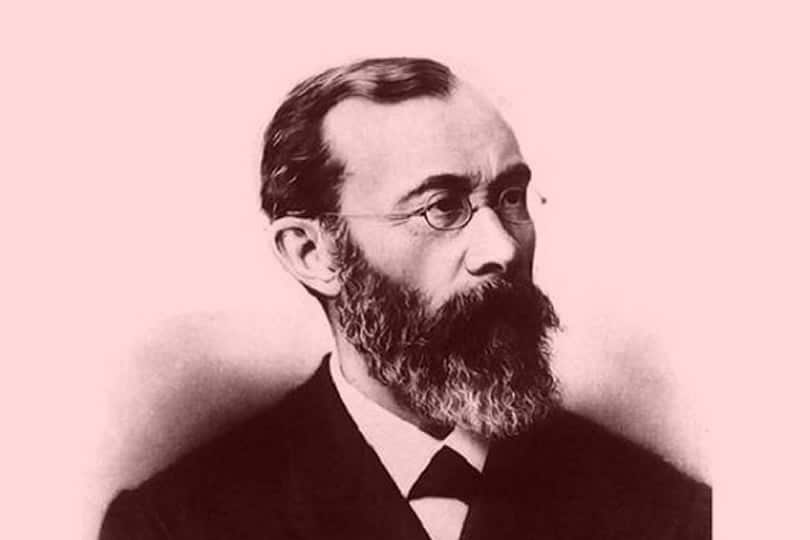Later years and legacy
Who is the father of psychology? Wilhelm Wundt continued his work until his later years. He passed away in 1920 at the age of 88 in Großbothen near Leipzig, but his legacy remains immortal. His contribution to the development of psychology as a scientific discipline is invaluable, and his name will be forever associated with the evolution of modern psychology.
Overcoming criticism
Despite his importance and contribution to psychology, Wundt’s work faced criticism, mainly due to his method of introspection. Critics argued that introspection is subjective and unscientific, which can lead to distorted results. Nevertheless, thanks to his successful integration of physiology and psychology, his legacy has maintained its place in history and influenced many other researchers and theorists.
Inspiration for future generations
Wundt’s legacy continues in the work of his students and other psychologists who were inspired by his approach and theories. His work laid the foundations for further research in the field of psychology and contributed to the development of new theories and methods. Wundt’s attention to detail, emphasis on a scientific approach, and interest in connecting various disciplines inspired many scientists who followed in his footsteps.
Wilhelm Wundt contribution to psychology
Although some of Wundt’s theories have been replaced by newer approaches over time, his influence on psychology remains strong. His approach to the scientific investigation of the human mind still affects contemporary psychology, and his legacy is considered a cornerstone of the field’s development. Wundt’s efforts to integrate different disciplines, such as philosophy, physiology, and psychology, represent a model for the current multidisciplinary approach to the study of the mind and behavior.
The significance of Wundt’s legacy
Wundt’s legacy endures due to his significant contributions to understanding the human mind and behavior. His emphasis on a scientific approach, carefully designed experiments, and systematic introspection has helped psychology secure an essential place among the sciences today. His work and theories have inspired countless other psychologists and researchers, laying the foundation for the current multidisciplinary approach to psychology. Wundt’s contributions to psychology remind us of the importance of continuing research and seeking answers to questions concerning human life and thought.
Wundt’s impact on educational psychology
Wilhelm Wundt’s work also had a considerable influence on educational psychology. His systematic introspection method and focus on understanding the fundamental psychological processes, such as perception, attention, and memory, have helped shape how educators approach teaching and learning. By emphasizing the importance of studying these processes, Wundt contributed to the development of more effective teaching methods and strategies tailored to individual learners’ needs.
Wundt’s influence on clinical psychology
Wundt’s impact on psychology extends to the field of clinical psychology as well. His systematic and scientific approach to studying the mind has paved the way for more rigorous diagnostic methods and treatment plans. His emphasis on understanding the fundamental components of the human mind has helped clinical psychologists develop a better understanding of mental health disorders and their underlying causes, leading to improved therapeutic interventions.
Connection to other psychological theories
Wundt’s work in psychology has influenced many other psychological theories and approaches, such as behaviorism, cognitive psychology, and even psychodynamic theory. His focus on understanding the human mind’s fundamental components and the dynamic interplay between them has served as a basis for many later researchers who sought to explain human behavior and cognition. In this way, Wundt’s ideas have transcended time and continue to impact the field of psychology today.
Influence on the development of psychological assessment
Wundt’s emphasis on systematic introspection and experimental methods in psychology has had a lasting impact on the development of psychological assessment tools. His dedication to rigorous and controlled experimentation has inspired the creation of various assessment methods and instruments, which are designed to measure cognitive and emotional processes accurately. This focus on empirical evidence and quantifiable data has become a cornerstone of modern psychological assessment.
The importance of Wundt’s legacy for future generations
As we continue to explore the mysteries of the human mind, Wundt’s legacy serves as a reminder of the importance of scientific inquiry and perseverance. His groundbreaking work in psychology has laid the groundwork for countless researchers and psychologists who have continued to advance our understanding of the mind and human behavior. His dedication to exploring the human mind through a scientific lens has inspired generations of psychologists and will undoubtedly continue to influence the field for years to come.
So who is the father of psychology?
In conclusion, Wilhelm Wundt’s pioneering work in psychology has left an indelible mark on the field, establishing him as one of its most important figures. His tireless pursuit of knowledge and understanding of the human mind, as well as his innovative methodologies, have helped shape modern psychology and inspire generations of researchers. Wundt’s emphasis on a scientific approach to studying the mind, along with his efforts to bridge the gap between different disciplines, has provided a strong foundation for the multidisciplinary study of psychology today. As we continue to explore the intricacies of human behavior and cognition, Wundt’s legacy will serve as a constant reminder of the importance of curiosity, persistence, and rigorous scientific inquiry in the pursuit of knowledge.
Wilhelm Wundt’s books on Amazon.com.
Where to next?
Unraveling the Legacy of Wilhelm Wundt: Father of Psychology part I.
Wilhelm Wundt’s Books: Foundational Works Shaping the Field of Psychology
Unraveling the Basics of Structural Psychology: Wilhelm Wundt’s Influence





